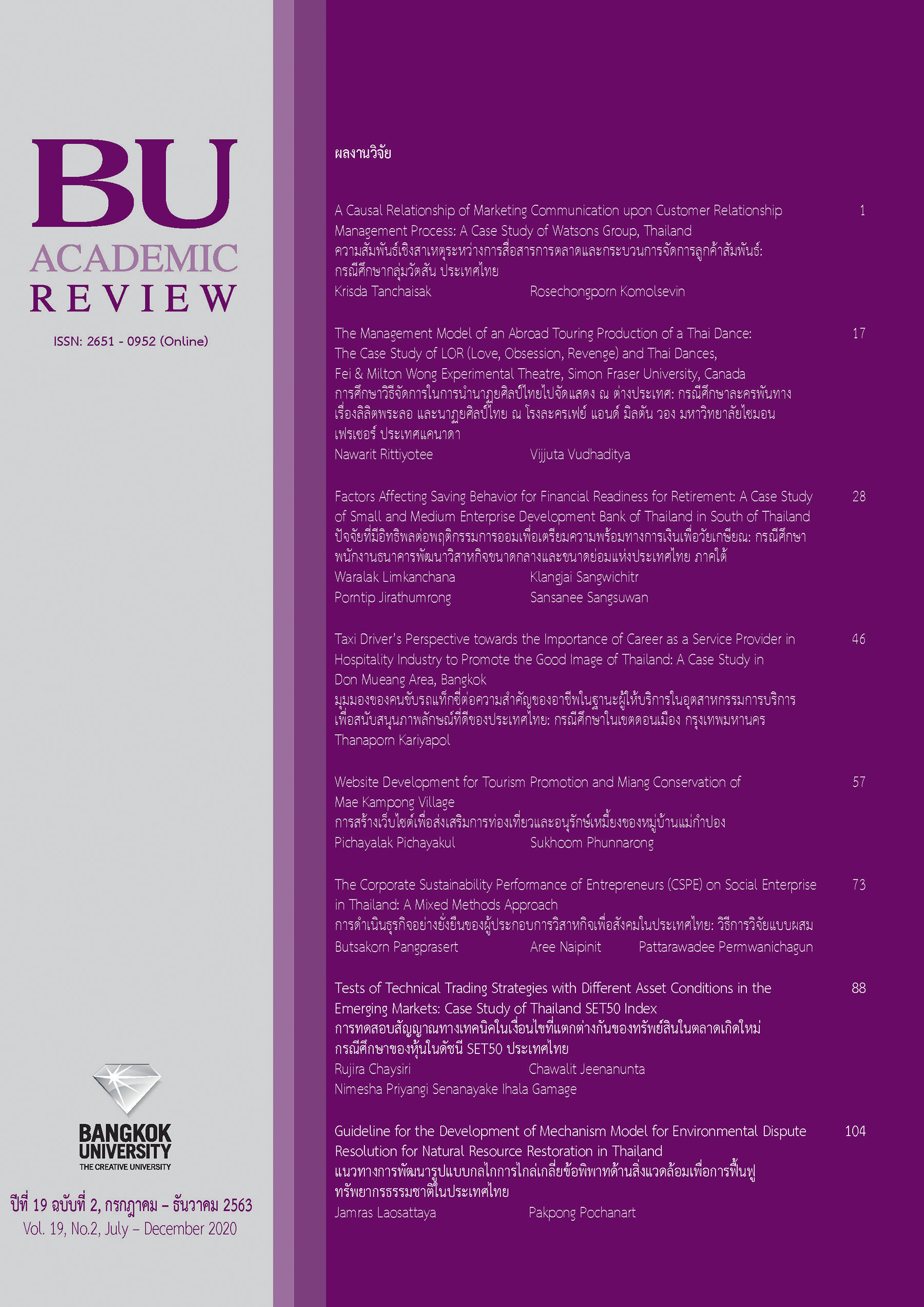The Construct of a Comfort Zone Learning for Social Work Learners
Main Article Content
Abstract
This article is part of the research on Empowering Social Workers through Feminist Curriculum Training, written to highlight particularly the second research objective which is to study the feminist training process for social workers in terms of empowerment, and to synthesize each process to secure relevant conditions and empowering controversial issues. This study used a qualitative research method of phenomenology in which the researchers had performed the role of participant-as-observer in the course of empowering social workers through the training curriculum of the International Women's Partnership for Peace and Justice (IWP). The findings revealed three management approaches of multicultural studies on women's empowerment bases. The first approach concerned the training process of the course that focused on building learning along the three “experience” bases: an analytical thinking base through experience sharing; an awareness base of an individual’s internal emotional condition; and a practice base which is important to “create internal stability” using a physical base. The second approach stated the process was composed of “self” as the participants, “he/she” as the fellow participants, “learning stimulants” as the “process conductor,” and “learning space” as the creation of a learning space throughout the training. The third approach was to create a learning path of power that includes the building of learning for change and areas for critical operation, the gender reform, the implementation of empowerment process (the course operating area), as well as conditions and debates on reinforcement during the operational course. The above findings reflected the linkage between the management approaches to the empowerment of multicultural education and gender-related concepts. The challenges of this study are to increase knowledge in the field of multicultural education management in relation with women empowerment and gender, and to study how empowerment approaches cover various dimensions of power and enhance the creation of empowerment.
Article Details
The manuscript submitted for publication must be the original version, submitted only to this particular journal with no prior acceptance for publication elsewhere in other academic journals. The manuscript must also not violate the copyright issue by means of plagiarism.
References
Adams, J. S. (1965). Inequity in social exchange. In L. Berkowitz (Ed.), Advances in Experimental Social Psychology (pp. 267-299). New York: Academic Press.
Carr, E. M., Dewitz, P., & Patberg, J. P. (1983). The Effect of Inference Training on children’s comprehension of expository text. Journal of Reading Behavior, 15(3), 1-18.
Cattaneo, L. B., & Chapman, A. R. (2010). The process of empowerment: A model for use in research and practice. American Psychologist, 65(7), 646-659.
Grosz, E. (1994). Volatile bodies: Toward a corporeal feminism. Sydney: Allen & Unwin.
Gutierrez, L. M., Parsons, R. J., & Cox, E.O. (1998). Empowerment in social work practice. A sourcebook. USA: Brooks/Cole Publishing Co.
Miley, K. K., & Dubois, B. (2009). Ethical preferences for the clinical practice of empowerment social work. Social Work in Health Care, 44(1-2), 29–44.
Nontapattamadul, K. (2006). Critical theory, analysis in social policy and planning. Bangkok:
Thammasat University Press.
Nontapattamadul, K., (2011). Qualitative research in social welfare, paradigms and method of research. Bangkok: Thammasat University Press.
Peterson, S. J., & Bredow, T. S. (2013). Middle range theories: Application to nursing research (3rd ed.). Philadelphia: Wolters Kluwer Health/Lippincott Williams & Wilkins.
Panich. V. (2015). Transformative learning. Bangkok: S.R. Printing Mass Products Co., Ltd.
Sutthinarakorn, W. (2017). Transformative learning and action research (2nd ed.). Bangkok: Siam Survey.
Sutthirat, C. (2014). Curriculum development: Theories to practice. Bangkok: V. PRINT (1991) Co., Ltd.
Wetchayachai, A., (2012). Strengthening the power of social work practices. Bangkok: Thammasat
University Press.


